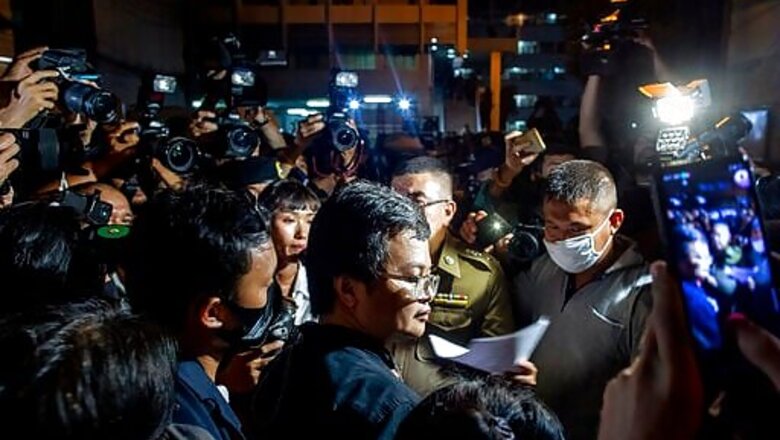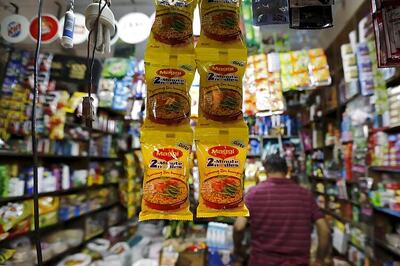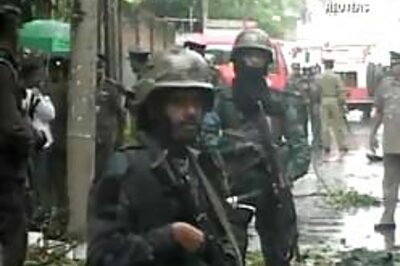
views
BANGKOK: Thai police said Monday that they have issued summonses to five activists who spoke at an anti-government rally in front of army headquarters last month, accusing them of violating a coronavirus emergency decree that prohibits public gatherings.
One of the five was arrested later Monday and charged with six offenses for his part in a rally this month, his lawyer said.
The growing protests have emerged as the most serious threat to Prime Minister Prayuth Chan-ocha, a former army general whose administration they accuse of incompetence and corruption.
They are being called in to hear charges as their rally breached the emergency decree,” Police Col. Prasopchoke Aiempinij said of the five who were summoned. No other charges are being considered at the moment.
Among those called in is Arnon Nampha, a civil rights lawyer who is out on bail after being charged twice following anti-government protests on July 18 and Aug. 3, with accusations including sedition and violating the public assembly ban. He said that he would report to police on Tuesday along with the other activists summoned over a July 20 rally.
Three of the other activists Panupong Jadnok, Parit Chiwarak and Suwanna Tanlek are also out on bail after being charged with sedition and other offenses related to the July 18 protest.
Panupong, however, was arrested by authorities on Monday for taking part in a protest this month. He was carried away by police while staging a solo demonstration against Prayuth in the eastern province of Rayong, where the prime minister was visiting.
Local news footage showed Panupong holding a placard outside a local market to be visited by Prayuth before plainclothes police surrounded him and carried him to a waiting van.
Noraset Nanongtoom, Panupongs legal representative from the group Thai Lawyers for Human Rights, said he was facing six charges related to an Aug. 10 rally at Thammasat University outside Bangkok, where Panupong gave a speech.
The student-led protest movement has declared three core demands: holding new elections, amending the constitution and ending the intimidation of critics of the government.
As the army chief in 2014, Prayuth led a coup ousting an elected government. He then served as prime minister in the military regime that succeeded it, and returned as premier after a general election last year. Laws guiding the 2019 election were widely seen as so heavily rigged in Prayuths favor that victory was all but guaranteed.
___
Associated Press writer Busaba Sivasomboon contributed to this report.
Disclaimer: This post has been auto-published from an agency feed without any modifications to the text and has not been reviewed by an editor



















Comments
0 comment